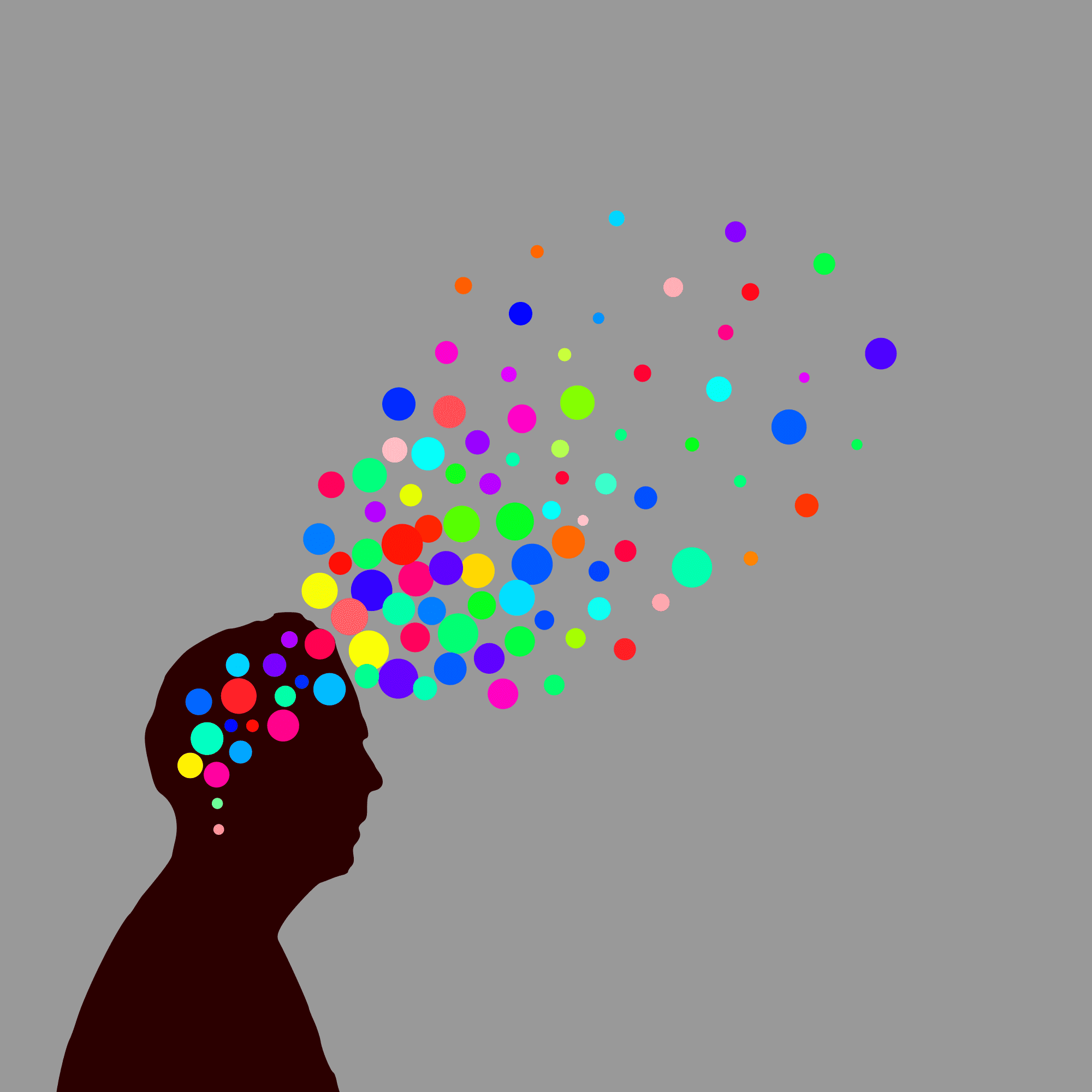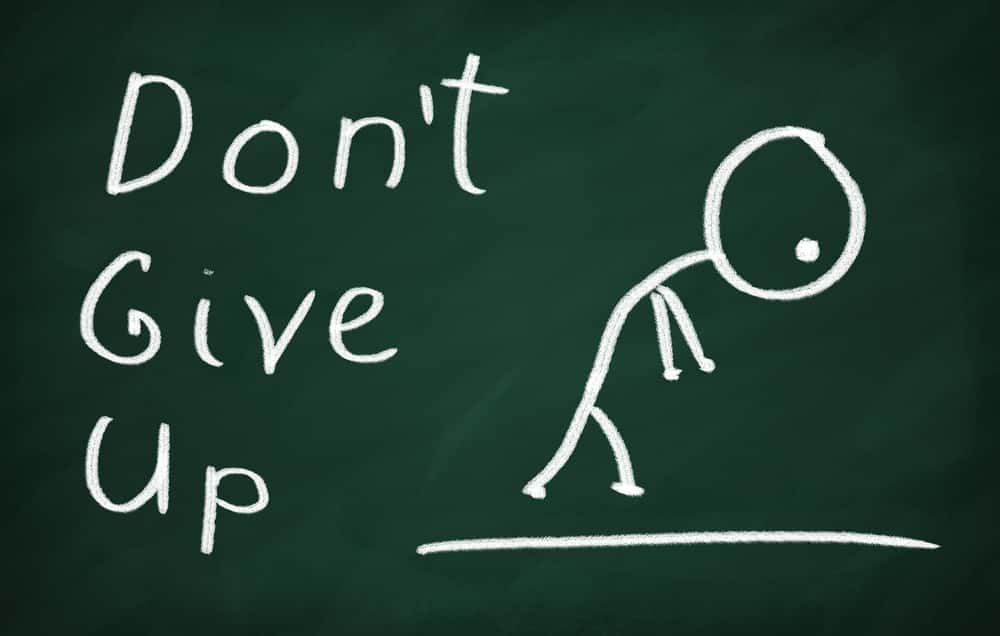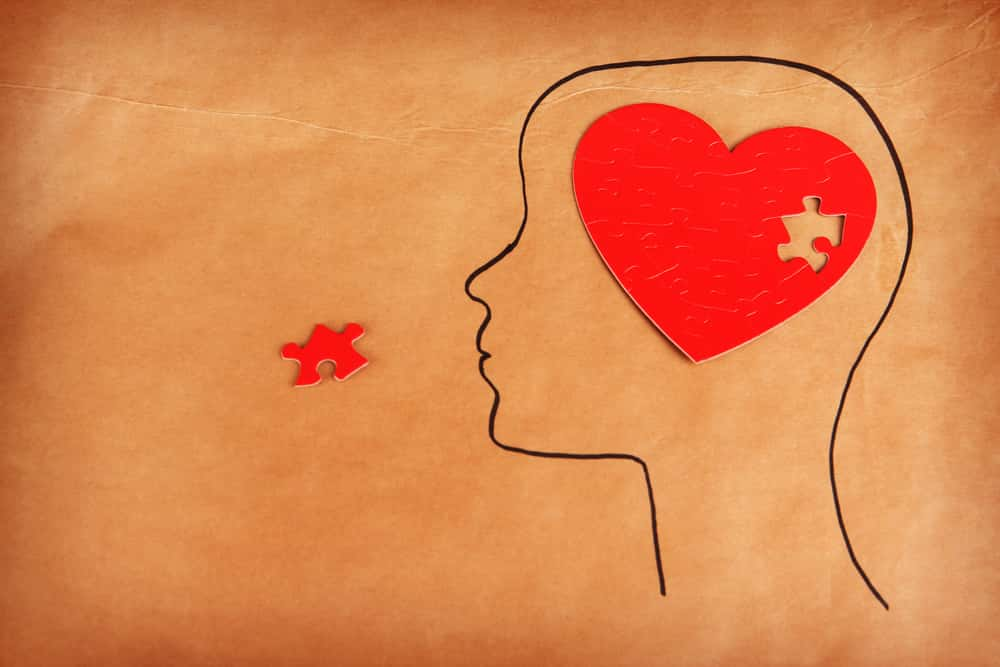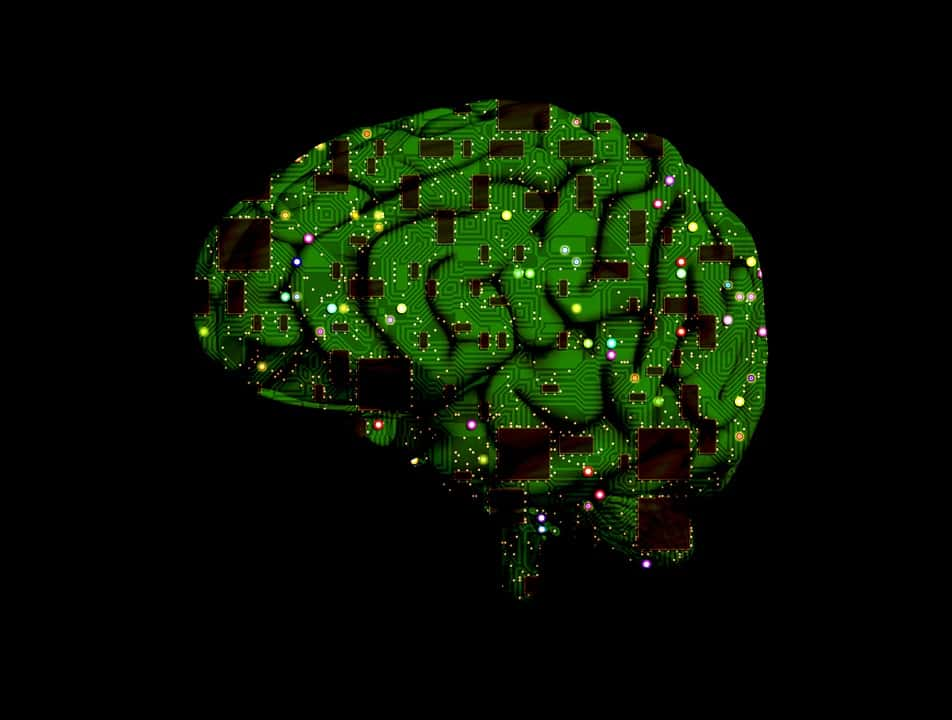Anyone who's spent enough time reading about psychology knows that the biggest danger of the subject is what it does to your own mind. After all, the mysteries of human thought are still, for the most part, just that: a mystery. And the further you delve into all the strange, fascinating, or downright creepy things there are to know about how our brains work, the more you can begin to question your own sanity. Or, at the very least, the sanity of everybody you've ever met.
Maybe our brains just aren't quite advanced enough to understand themselves. Once you've read through this article, it's possible you'll agree.
So without further delay: here are a few mind-bending facts about human psychology.
44. Tied Down
Studies have shown that people can only have strong ties to 150 people at the most. It's a phenomenon known as, "Dunbar's Number" after the British anthropologist Robin Dunbar, who first put the idea forward in the 1990s.
Dunbar's claim rests on the relationship between the size of a primate's brain and the size of their social groups. He reached the number we recognize today by comparing the size of our brains to those of other apes, and then extrapolating the size of a social group which we could possibly recognize, based on how monkeys behave.
Think of it like this: let's say there is one species of monkey who are each capable of recognizing 50 other monkeys in their group. Let's also say that the members of those species have brains 1/3 the size of ours. Dunbar theorized that because our brains are three times the size, we ought to be able to recognize and appreciate three times the number of individuals in our social circle.
The idea has been used in a variety of industries and walks of life, to help large organizations function. It's the reason that some companies insist on creating buildings and teams no bigger than 150 members, in order to ensure that each member is psychologically capable of knowing each other team member.
43. Forest For The Trees
When focusing very hard, people will often miss large changes right before their eyes. This affect is called inattention blindness, and is one result of the way our brain processes information. Because it turns out that our brain can be a bit lazy when it comes to processing environmental stimulus... at least when we're distracted.
Scientists speculate that this adaption came to be in order to increase our odds of survival when faced with a serious threat. In a sense, it seems like our brain almost "turns off" inessential processes, so we can focus on the task at hand. And for the most part, that can actually be very handy. It would be a real miss if a person trying to steer their car out of a collision were distracted by the lyrics of "Hey Ya" playing on the radio. But on the other hand, as modern life has brought most of us farther and farther away from daily threats to our survival, this bit of evolution has become a little bit of a nuisance. So much of our contemporary world asks for multitasking... and yet we aren't remotely built to do so effectively.
Anyway, there is one upshot: if you ever feel like an absolute moron because of your almost constant brain farts, you don't have to worry... it's not your fault, it's evolution's.
42. What's Your Angle?
People tend to imagine things from a high, tilted angle, like they're looking at it on a table that's about waist high.
41. 'Member?
Memories are reconstructed as they are recalled instead of playing back like a film. That's why memories change over time, and why people forget certain details. Unforgettable fact right here.
40. Memory Lanes
You can only remember 3 or 4 things at time. Remember that, too.

39. Multifaking
Multiple studies (not all at once) have shown that you cannot actually multitask. Either all the things you're doing are related to your main goal, or your performance dips in one of the tasks. One step at a time people!
38. Dope-amine
Dopamine can make you addicted to seeking out information. That's why going down information rabbit-holes on the internet can be so consuming.
37. Red Vs Blue
Red and blue together creates a depth effect optical illusion, making the viewer believe something is closer or farther away than it actually is. Exploiting this illusion is how early 3D effects were created.

36. Back To Basics
Your "old" or "lizard" brain won't let food, sex, and danger go unnoticed. Since those were the only driving forces when life on Earth started to develop, people are hardwired to take note of these things, as they were essential to our survival many thousands of years ago.

History's most fascinating stories and darkest secrets, delivered to your inbox daily.
35. Face Time
Pictures that include human faces will always be more captivating than other subjects, including human bodies.
To understand that, just remember that we're all little more than very, very advanced monkeys. Because humans are inherently social creatures, and because we're hardwired to communicate our emotional and physical states through facial expression, we are also hardwired to frantically scan the world for facial cues at all times. In a way, it's like our brains are addicted to facial stimulus: evolution has helped us to deem such input as so important, our brains immediately and subconsciously react anything that even remotely resembles a face as though it's the most important thing that's ever existed.
That's right: you're addicted to faces. You just didn't know it. Sorry to break the bad news.
34. Branded
You're most affected by advertising and brands when you're sad, scared, and feeling vulnerable.
Hmmmm. Based on the number of sad, scary, or emotionally-manipulative ads you've seen in, say, the last 24-hours... do you think there's any chance that advertisers have worked this out?
33. Culture Clash
Cultures have been shown to shape our minds, imaginations, and unconscious behavior.
One interesting example: when people raised in a Western society are asked to think of a dragon, they almost invariably describe a large, winged creature. Something like the beasts in Game of Thrones, for example. Meanwhile, though, people from China will come up with an image that's much more serpentine, with a long, winding tail.
Your reaction to that may be to think, "well, of course, we're exposed to different things growing up," and... you're right. That's exactly the point. Often, what we consider to be self-explanatory (what a dragon looks like, for example) can be entirely reliant on context. That's something that more and more designers, business people, and even urban planners are beginning to consider, when crafting products or experiences for large groups of people.
 Public Domain Pictures
Public Domain Pictures
32. Speed Readers.
Studies have shown that people read faster when looking at long, long, long, long, long, long lines of text.
But our
eyes prefer
shorter lines
because they
are easier
to focus on.
31. N'SYNC
Synchronous activities create strong bonds among people. Scientists have attributed this phenomenon to the shared emotional highs and lows experienced when completing any significantly challenging activity with another person. As humans were first evolving, this may well have been nature's way of encouraging cooperative behavior.
So keep this in mind on your next date. The love our primitive brains have for shared problem-solving might just be the key to your finding love yourself.
30. Bits And Bites
Small bits of information are much easier to digest, and are retained at a higher rate.
And, as those of us who write informative content for the internet know, this presents an interesting challenge when trying to communicate complicated information. On the one hand, people's attention-spans and capacity for retaining information have a natural limit. On the other, if you try to hard to simplify and reduce, you can lose some crucial aspects of what you are trying to get across. It's a complicated problem, and of course, one that we are still finding new ways to solve.
29. Under Pressure
Too much stress will result in poor performance, which will lead to more stress, continuing the cycle until the job is done. So next time somethings seems to be too much, take a break and then power through it!
28. Lazy By Nature
Humans are inherently lazy, with some studies suggesting humans evolved to only "work" for 4 hours a day. Don't feel so bad next time you sleep in, it's natural.
27. Mirage
We all know progress is motivating, but did you know that even the illusion of progress is motivating? Look how far you've read! You're almost done reading this list!
26. I Wander
The human mind is wandering 30% of the time. Some scientists argue that it wanders up to 70% of the time. Yours is probably wandering right now. Focus!
 Wikimedia Commons Nevit Dilmen
Wikimedia Commons Nevit Dilmen
25. Money Train Of Thought
People will spend more money, if no one is mentioning money. The more money is mentioned, the more likely people are to be aware of their current funds.
24. Voting Public
Studies found that people often vote for whomever or whatever is listed first on the ballot. Seeing something listed at the top tricks our mind into thinking it's in first place, or the best of the list.
23. Seeking Guidance
When uncertain, people will often look to others for guidance. That's why teachers and mentors are so important.
22. Defensive
The more uncertain you are on a topic or subject, the more likely you are to defend it to the death.
21. Monkey See
People tend to value a product more if it's right in front of them. Hologram technology must have advertisers salivating.
20. Sexual Beings
Most of our behaviors are the result of the sexual choices our ancestors made. Having a comfortable shelter, eating good food, looking the most attractive, these are all things that would have gotten you a good mating partner as humans were evolving. The appearance of these things have changed, but the desires are the same.
19. Move to the music
Your favorite song is probably your favorite because you associate it with an emotional event in your life.
17. Use Your Words
What words people use when describing something can manipulate how you receive that information. If people are described a crash with "contact," they'll perceive less damage to be done when they see it for themselves, despite the extent of the damage. Inversely, if the crash is described with "smash," people are more likely to think the crash to be a bad one, even if it's not when they finally see it.
16. Untimely
People with suicidal thoughts experience time at a slower rate than those who aren't suicidal. Suicidal people will often write several suicide notes, as doing tasks helps "speed up" time, similar to how your workday goes by faster if you're busy.
15. Mr & Ms Clean
Studies have shown that people are more likely to clean more if they smell cleaning agents in the air. Bleach scented candles, anyone?
14. Forget It
The mind will forget things to prevent overloading, as well as allowing you to learn more quickly. Forgetting is kind of like wiping your browser cache, and is often done for the same reasons.
13. REMember
You can practice a new task or skill during REM sleep (that's the part of sleep when you do most of your dreaming).
Lucid dreamers take note, this can significantly reduce the time you need to reach those highly sought after 10,000 hours.
12. Mind Over Matter
The mind is very powerful. So much so, that people can be given sugar pills and told that it is powerful medicine. The belief that it's powerful medicine is so strong that these people often show some intended effects of the medicine, despite the absence of any medicine. This is called the placebo effect.
11. Trolls
Psychologists examined Internet trolls and found that they are "narcissistic, psychopathic, and sadistic".
10. Strong Scents
Memories triggered by scents are stronger than memories triggered by any other sense.
9. Out Of Sight
Distorting body image affects how you experience pain. In a study, subjects viewing a cut hand through binoculars so that it appears gigantic, more pain is felt by the owner of the hand. Inversely, if someone were to view their hand through the wrong end of binoculars so that it appears smaller, less pain is felt and the swelling wasn't as intense.
8. Stay Motivated
Announcing your goals to others before you accomplish them will lower your motivation, and make you less likely to succeed.

7. Sharing Is Caring
The more money you spend on people, the happier you are. Turns out Scrooge was wrong.
6. Good evening, good afternoon, and good night
The Truman Syndrome is a psychological disorder in which patients believe they're living in a reality TV show.
5. Smarties And Dummies
Smart people underestimate their intelligence, while less intelligent people will think they're brilliant. Knowledge is knowing you know nothing.
4. Less Stress
Stress levels reduce significantly after the age of 33. Which is part of why people are so fond of saying, "it gets better." Life truly does get easier as a person gets older (at least in some ways), as your brain chemistry continues to alter throughout your life. Although therein lies the rub: because the brains of younger people are physically less developed, it can be difficult for many of us to comprehend, as a young person, just why we're going through such a difficult time.
As always, it seems to come down to the ultimate dilemma: our brains just aren't quite smart enough to fully understand themselves.
Good going, evolution.

3. Sing Along
Singing (along with songs) reduces feelings of depression and anxiety.
Thank you, human psychology, for this trick: when you're feeling anxious, sing!
Just, you know, make sure you pick the right tune. Some are better for a person in a bad mood than others.
2. Heart On Your Sleeve
You can literally die from having your heart broken. It's called Stress Cardiomyopathy, sometimes colloquially referred to as "Broken-heart Syndrome". Basically, intense stress (either emotional or physical) can lead to severe heart muscle weakness, which sets on incredibly quickly.
It's a condition which is difficult enough to handle when a person is young and healthy... but for someone is already reaching old age? It can be absolutely life-threatening. Which is what leads to the phenomenon of one person in a marriage dying, followed quickly by the other. If one member of the couple dies of old age, odds say the other is elderly as well.
1. I am obsessed
Romantic love is biochemically indistinguishable from having severe obsessive-compulsive disorder.















































